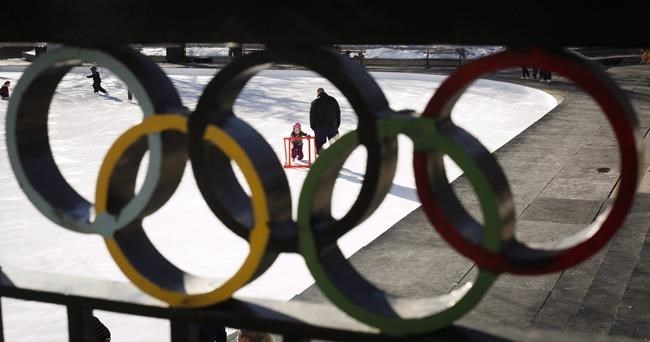Calgary city council approved a slate of moves towards a possible bid for the 2026 Winter Olympics and Paralympics on Tuesday but they're contingent upon the federal and provincial governments contributing money towards it.
Council voted 8-6 to approve in principle motions that included forming a bid corporation and spending another $3.5 million on exploring a bid.
But those moves won't be put into action until the Canadian and Alberta governments also commit to the bid.
"What council decided tonight is to move forward, so we made it through another gate, on the Olympic process," Mayor Naheed Nenshi said. "This gate is contingent on confirmation of the federal and provincial funding."
Nenshi has repeatedly said a bid can't go ahead without federal and provincial financial support.
The city posted documents on its website Friday stating both levels of government were on board to contribute money but walked that back a day later saying no confirmation was received and those reports were posted in error.
The cost of a 2026 bid is estimated to be $30 million. The retracted reports stated the feds would chip in $10.5 million and the province $10 million before those document were removed from the city's website.
"I would say I am extraordinarily confident that the . . . funding is extremely close to forthcoming," Nenshi said Tuesday. "We've had lots of conversations with the feds and the province on this.
"I think that with council's decision to move forward today with that kind of commitment, I think that probably will get rid of any remaining barriers with the other governments, but of course it's their decision."
The International Olympic Committee will invite cities to bid for 2026 in October with the deadline to do so by January. The winning city will be announced in September, 2019.
Calgary was the host city of the 1988 Winter Games.
The city allocated $5 million in 2016 to the Calgary Bid Exploration Committee. CBEC concluded last year that the cost of hosting the 2026 Games would be $4.6 billion and Games revenue would cover half that cost.
But the director of the city's bid project team that took over from CBEC said Tuesday that estimate will likely be too low when inflation, contingency and endowment funds are calculated.
"We are anticipating that number to be higher," Kyle Ripley said.
Council voted in November to spend up to $2 million more on continued exploration of a bid. But only $1 million was released pending an answer from the federal and provincial governments.
The city was looking for a three-way split between the three levels of government on the cost of the bid.
The $3.5 million approved in principle Tuesday would bring Calgary's spending on a bid to $9.5 million and thus fulfil its one-third financial commitment, Nenshi said.
Also approved in principle Tuesday was administration returning to council April 10 to discuss a public engagement plan.
Had council voted against the motions Tuesday, Calgary would not bid for 2026.
"A no vote today means this project is dead," Nenshi said.
Council is expected to debate Wednesday whether Calgarians' desire to host the 2026 Winter Games should be polled via a plebiscite.
Nenshi said he wasn't opposed to a plebiscite, but "somebody's got to pay for it. It's two million bucks and it's not going to come out of the existing budget, so you've got to find the money.
"We need robust public engagement. We really need talk to people and get an idea of what they're thinking. I think there are other ways to get engagement."
Donna Spencer, The Canadian Press

